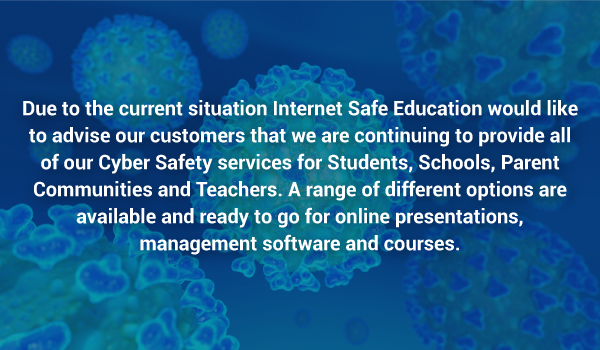
As a child do you remember the only way you could talk to your friends was a telephone connected to the wall by a cord. Always in the most public space in your house for all to hear. Today your children can communicate through multiple devices and apps anywhere and at any time.
When the main source of communication between your children and their friends is social media, any conversation about restricting or placing boundaries around usage can be a minefield. Teenagers naturally crave freedom; they are looking to make their own choices and gain independence from their parents.
Finding the solution together
It’s difficult to strike that balance between trying to protect them from the real dangers online and empowering them to make the right choices in the moment for themselves. This is where conversation is key. Earlier this year, The Office of the Esafety Commissioner launched their Safer Internet Day initiative called ‘Start the Chat’ and I believe this is the perfect place to start. Keeping the lines of communication open and making it a common conversation in your household will provide you with the opportunity to share your concerns and expectations with your teenager and allow them to also feel heard.
Talking about family expectations and rules around social media in your home doesn’t need to be a battle of the will’s showdown. A simple starting point for your family can be identifying what programs, apps and websites are appropriate. Your teenager will have a very clear idea of what they want to be looking at and it will be strongly correlated with what their friends have access to. Teenagers are approval seeking beings who want to be accepted by their peers, so this can be a tricky one to navigate, you don’t want them to feel left out however the family home sets the tone of their online habits and behaviour in the outside world.
Setting time limits and appropriate times of the day for your teenager to be online will set them up to manage their other commitments like school, self-care, recreation and family.
Talking about where it is appropriate to connect with their peers is an important one. Mobile phones, tablets, gaming and computers with access to the internet should all be in a public space in the home. Online predators need privacy ; unsupervised children can be a target as they can communicate with and influence the child without the prying eyes of adults.
When your teenager is online, they can be exposed to 4.5 billion strangers who aren’t as invested in the safety and protection of your child. Agreeing upon who they can connect with and who isn’t appropriate, and the reasons why helps you to monitor who may be influencing their actions, their habits, their behaviour and even their appearance.
Online etiquette can easily be forgotten when our teenagers see that even adults engage with each other online as if there is no consequence to the way they communicate with each other (publicly) especially around the use of language. Inappropriate language can be a slippery slope to bullying behaviour so ensuring they are clear of what you both agree to be acceptable language will not only get them thinking about how they communicate with others but will also empower them to identify their own boundaries and make healthy choices about what they will expect from others in online communication.
What to do if things go wrong online
Inevitably, with the exposed environment of social media and the wider internet, things can and will go wrong. Discussing some examples of situations where something might go wrong is important; they might see images and/or behaviours that my make them uncomfortable, they might be speaking to someone that is using threatening language or they may be concerned about their friend’s social media activity. Arming them with some easily actionable steps will give them the confidence (and you too) that they will be able to not only identify when there is a problem but also have the ability to do something about it.
Helping your teenager navigate their relationship with social media can be challenging especially with a little (or a lot) teen angst in the mix however keeping the lines of communication open with your teen to come up with mutually agreed upon standards for your family is a good place to start.
What to know more and take action, download Brett’s free parents’ eBook ‘5 Principles to Stay Safe Online’.


